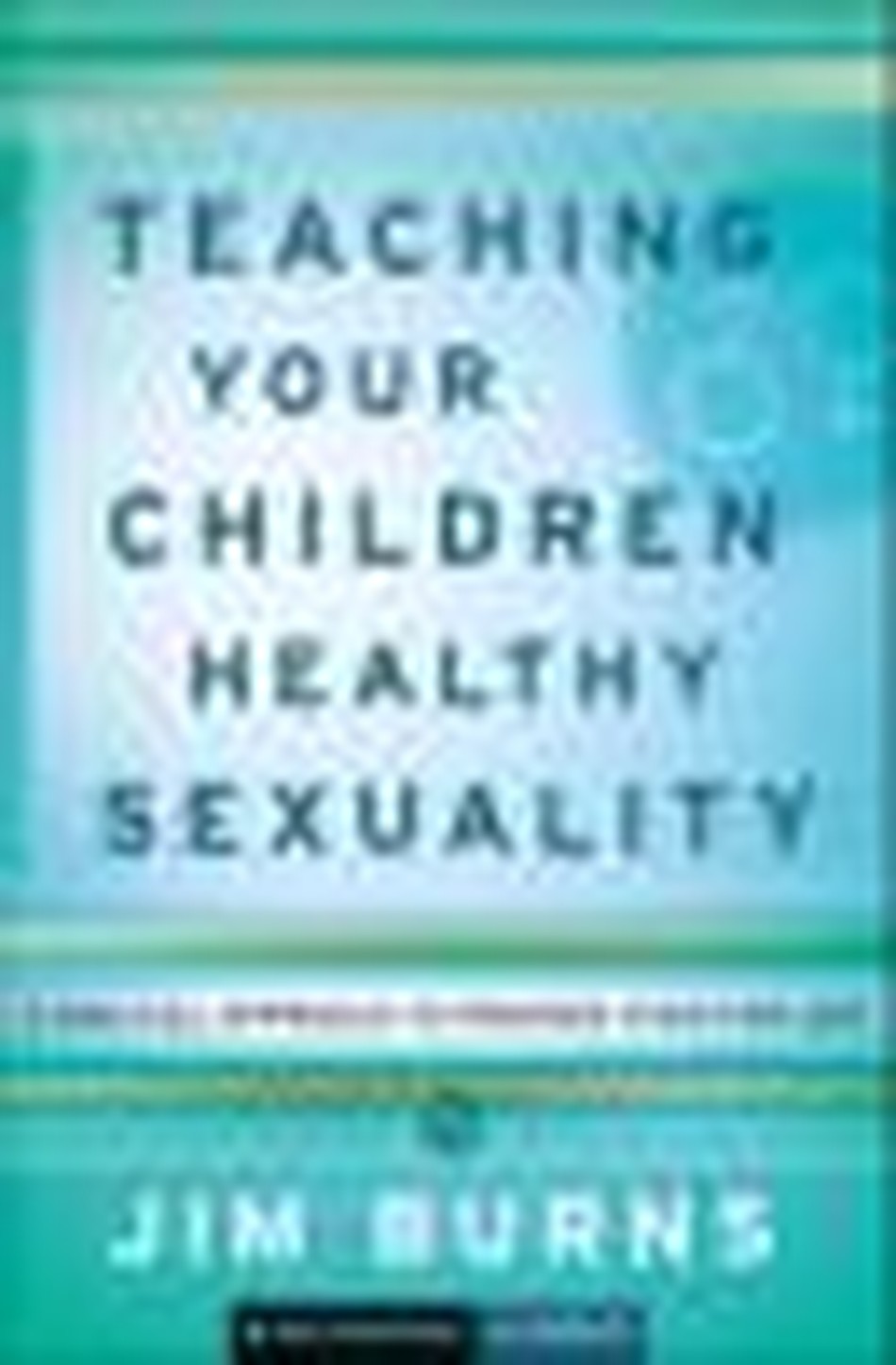EDITOR'S NOTE: The following is an excerpt from Teaching Your Children Healthy Sexuality: A Biblical Approach to Preparing Them for Life by Jim Burns (Bethany House).
Teaching Your Kids Value-Centered Sexuality
"How many of you received healthy, value-centered sex education from your parents growing up?" It's a question I ask parents everywhere. And the response is always the same. In a gathering of, say, four hundred people, usually four will raise their hands. It doesn't matter where I am—speaking in a church or another place—the ratio is consistent.
It's true: Our parents didn't talk to us about healthy sexuality, and, unfortunately, we're not doing much better with own children. A vast majority of young people say they receive more information about sexuality from their friends, media, and school than from their own home. This is not good news, especially when all studies show that the more positive, value-centered sex education kids receive in their home, the less promiscuous they will be.
A parent is almost always the person who has the best interest of their child in mind when it comes to sexuality. And you and I have the opportunity to provide our children healthy, value-centered sex education that is based on what God values. He has given us our sexuality. In the framework of Scripture, sex is not dirty. In the context of marriage it is rather beautiful. The world's culture has cheapened sex, but God's view of sexuality is wonderful and magnificent.
Frankly, it's not the primary job of schools to teach morals and values, and it definitely shouldn't be left to the latest rock star or media magnate. And friends? I now laugh out loud at what my friends told me in the fifth grade about the birds and the bees. Talk about wrong and misguided information.
Even though this generation of parents typically wants to do a better job of communication, too many well-meaning moms and dads are remaining silent for too long. Most didn't have a healthy conversation about sexuality modeled for them. They are afraid that talking about "it" will rob their children of their sexual innocence, or their children's sexual desires might be awakened early. Some parents avoid bringing up the subject because they might be asked about their experiences, and they aren't all that proud of how they handled their own sexuality. Regardless, the best person to teach your children about sexuality and relationships is you!
The Goal: A Lifetime of Sexual Integrity
For many parents, the foremost goal is to do everything possible to make sure their child stays pure until his or her wedding day. This is wonderful, but I believe we can and should do much more for our children. We can help establish in them lasting sexual integrity that starts at a young age and extends throughout their entire life, guiding their self-image, how they treat members of the opposite sex, and how they view and enjoy intimacy in marriage, as well as how resolute they are to remain faithful in mind and body. I compare it to teaching our children healthy eating habits. We certainly want them to eat their broccoli, whole grain breads, and other good things while living at home, but more than anything, we want them to continue reaping and enjoying the benefits of eating healthy after they have moved out.
This kind of a core belief in sexual integrity doesn't come from a one-time conversation or a sex education class. It develops as parents instruct, dialogue, and model a life of value-centered sexuality. When I talk with young people who have grown up with sexual integrity, they almost always mention having ongoing conversations with their parents that at least most of the time felt very natural. No matter what the age, kids learn best when they talk and dialogue, not just when parents lecture.
Scott and Anne came to me for premarital counseling. They had both previously been in my youth group. During one session we talked about sexuality. I was pleased to hear they were both virgins; this is usually not the case today, even among Christians. I asked how they had chosen sexual integrity when most of their generation had not. Their answer was insightful. First, they said their parents had talked openly and freely about sex-related issues. Secondly, while in the high school youth group, they had taken a sexual purity pledge very seriously. Thirdly, although they did have a strong sex drive and it had not been easy to wait, they both had made a decision to practice the spiritual discipline of sexual abstinence. Personally, I have found that when young people like Scott and Anne commit to only the physical discipline of sexual abstinence, they do not do as well as those who honor and love God with their eyes, mind, and heart, as well as their body. This all-out commitment to sexual purity is living according to what I call the Purity Code (explained in more detail in chapter 2).
Scott and Anne's wedding was a joyous occasion, and I made it a point to thank both sets of parents for the incredible start they had given the young couple. The parents laughed and said it wasn't always easy. In fact, they said some conversations were downright uncomfortable. But the results were well worth the discomfort. And Scott and Anne were on their way to discovering what authorities have known for years: Sex is better in marriage. Sex is better when couples have a spiritual connection, and sex is not better if you live together before marriage.
You may be wondering, what does this story have to do with me and my family? My kids are still young. Actually, the very best time to introduce healthy sexuality is when children are young. Then you can naturally teach healthy values at the proper developmental stage of life.
Teaching Your Children Healthy Sexuality
Copyright © 2008 by Jim Burns
Published by Bethany House Publishing, a division of Baker Publishing Group
PO Box 6287 Grand Rapids MI 49516-6287
Used by permission. All rights reserved. No part of this publication may be reproduced, stored in a retrieval system or transmitted in any form by any means, electronic, mechanical, photocopy, recording or otherwise, without the prior permission of the publisher, except as provided for by USA copyright law.








